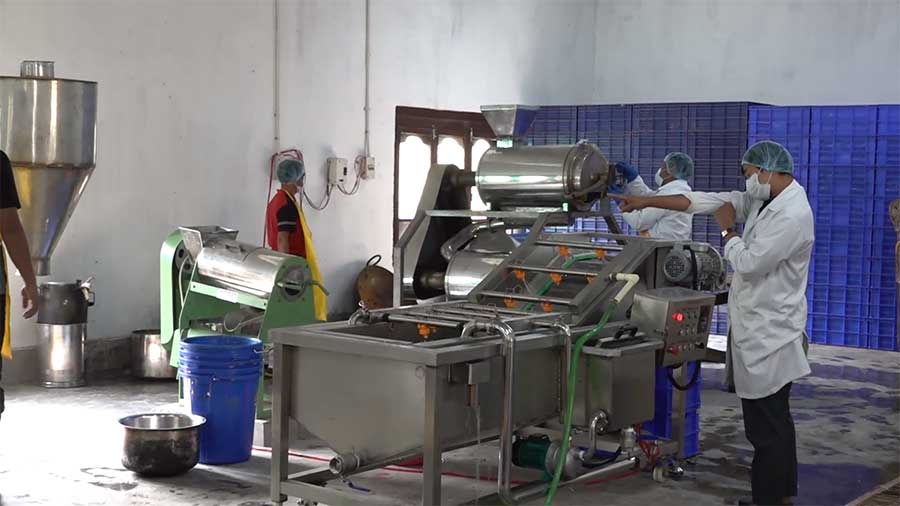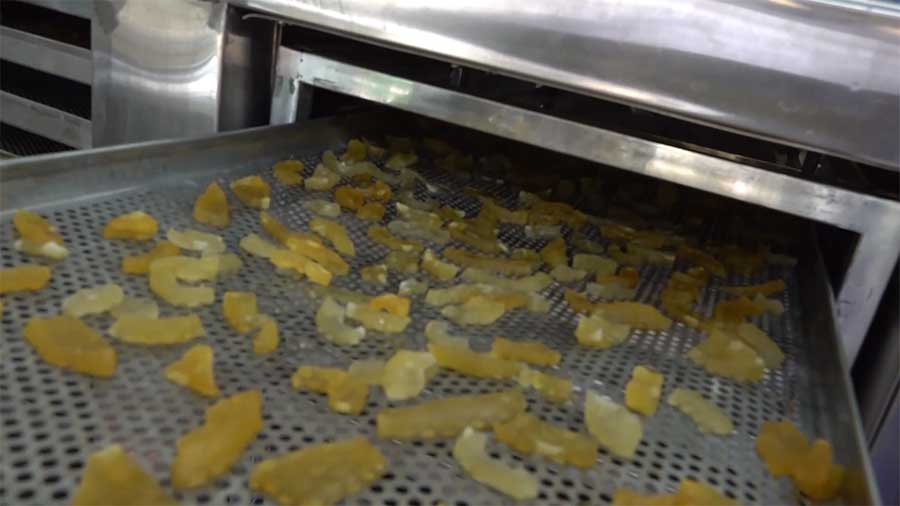
Excess production and marketing challenges resulting in rotting produce are an issue faced by farmers across the country. But one way to address this is through value addition. And this is exactly what the National Post Harvest Sub-Centre in Trong, Zhemgang is teaching farmers. The centre is equipped with all kinds of machinery to process farm produce and provides the service to all for free.
 One of the new machines at the centre is the chips dryer which can be used to dry any kind of fruit or vegetable. The machine has the capacity to dry 120 kilograms of any fruit or vegetable in one go. It takes about 12 hours to finish. This is one of the several machines set up at the food processing plant.
One of the new machines at the centre is the chips dryer which can be used to dry any kind of fruit or vegetable. The machine has the capacity to dry 120 kilograms of any fruit or vegetable in one go. It takes about 12 hours to finish. This is one of the several machines set up at the food processing plant.
Any farmer can avail themselves of the services to make different kinds of processed food items like chips, pickles, candies and even wine. The services are provided for free.
“Basically, the surplus cash crops and other food items which cannot be exported or sold, won’t go to waste. People can bring them here and process them and make some income from it,” said Parsu Rai, the Officiating Manager of the National Post Harvest Sub-Centre.
Thinley Dorji, a Technician at the sub-centre says people can “make chips, pickles and many other food items. At the moment, we are working on the production of orange pulp with the local farmer groups.”
The centre has almost a dozen machines including a ginger and turmeric peeler machine, and a grinder machine for chilli and ginger. The staff also trains the farmers who come to the centre on how to use the machines, about the food processing procedures and on packaging products.
“Since last year, we installed the new machines and have been giving these services to the farmers of three dzongkhags. It is mostly the interested youth groups who come here and process food items,” said Thinley Dorji.
The centre remained closed for almost 4 years after it was damaged by a fire in 2018. It was rebuilt at a cost of Nu 5 M by the Ministry of Agriculture and Livestock.
The centre was initially opened in 2008.
Pema Samdrup, Zhemgang
Edited by Yeshi Gyaltshen










